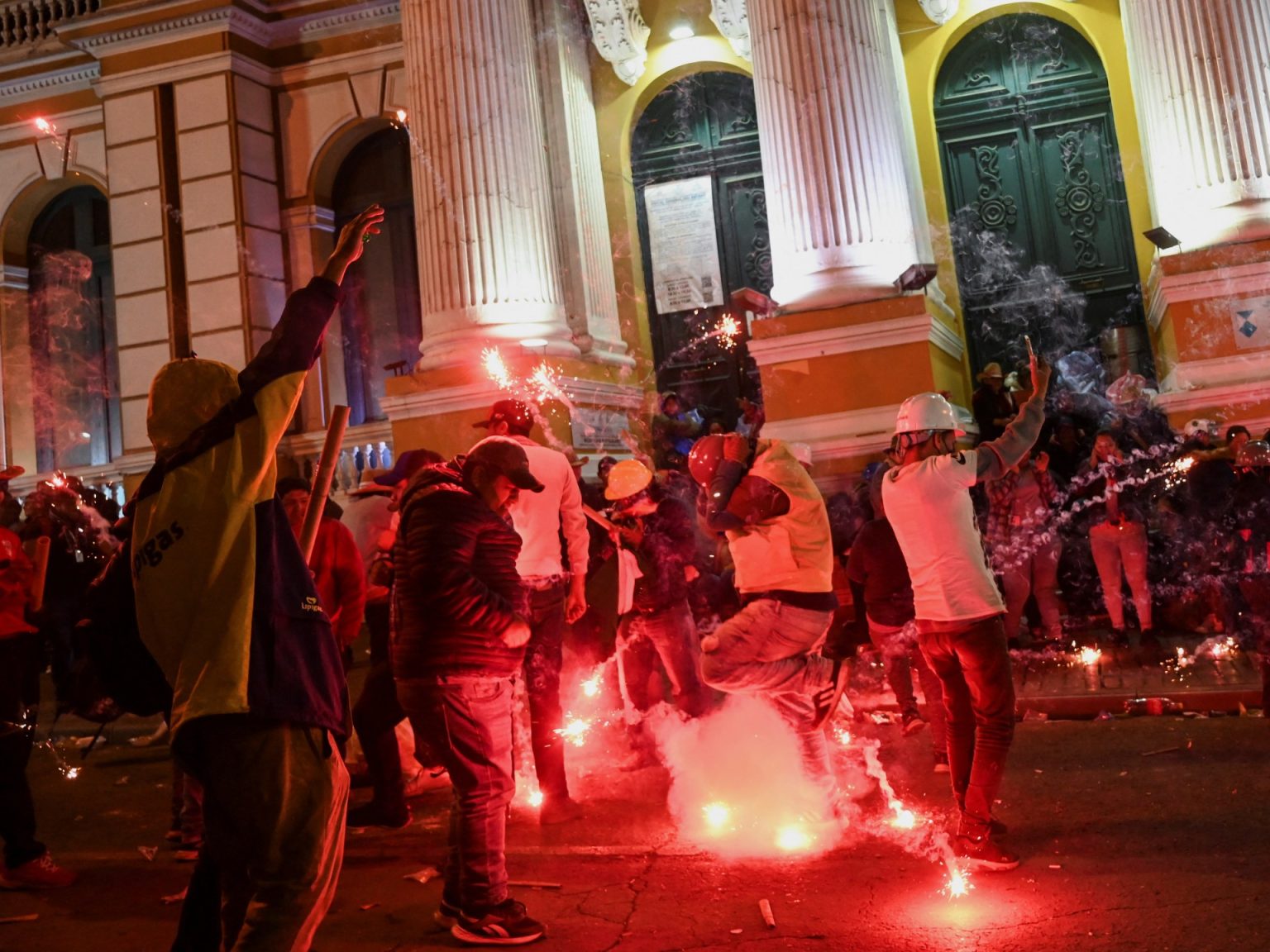Anti-government protesters clashed with supporters of President Luis Arce in La Paz, Bolivia, sparking fears of further unrest in the nation amidst an economic crisis ahead of the next presidential election. Former President Evo Morales issued an ultimatum demanding cabinet changes within 24 hours, leading to tensions escalating in the central square where the main government buildings are located. Bolivia’s foreign ministry rejected Morales’s ultimatum, stating it threatened the country’s democratic order.
The clashes in La Paz are a result of a power struggle between Arce and Morales, who were once close allies but are now rivals within the dominant party, Movement Towards Socialism (MAS). Their political tensions have paralyzed the government, depleting foreign exchange reserves and fueling street protests. Morales, seeking to make a comeback after being ousted in 2019, is pushing against constitutional barriers preventing him from running for another term, exacerbating the political standoff.
The current situation in Bolivia has drawn comparisons to past governments that were toppled by mass protests, with some fearing a similar outcome as in the 2003 resignation of former President Gonzalo Sanchez de Lozada. While tensions are high, there is no indication that security forces will abandon Arce in favor of Morales, according to political analysts. Morales has shown his ability to mobilize support nationally, but the next steps in the conflict remain uncertain as both sides dig in.
Economic challenges have exacerbated the political unrest in Bolivia, with poverty rates of 36.4% reported in 2021, and a drop in revenue from natural gas exports contributing to the crisis. Arce’s government has been using international reserves to sustain domestic subsidies, leading to a shortage of dollars and the devaluation of the Bolivian peso. Morales has capitalized on the economic crisis to rally his support base of coca farmers, Indigenous groups, and workers, staging protests and marches against the Arce government.
Morales and his supporters embarked on a 200km “March to Save Bolivia” to pressure the government, with the Indigenous highland culture playing a prominent role in the protests. Both sides have blamed each other for the recent violence, with Morales accusing Arce’s government of using paramilitary groups to incite violence, a claim supported by Bolivia’s ombudsman. The clashes reflect deep-seated divisions in Bolivian society, with echoes of past political unrest and a looming sense of uncertainty about the country’s future.


